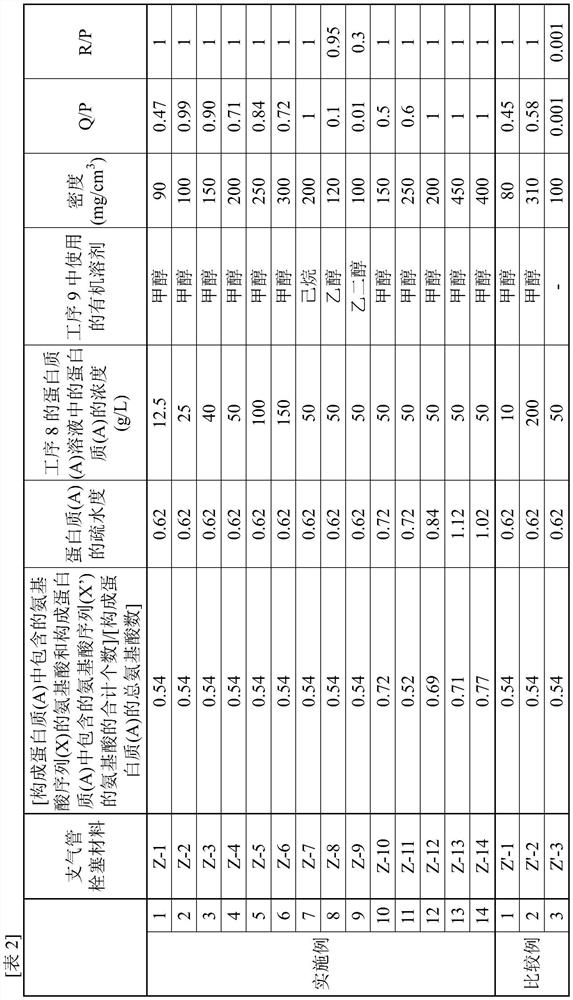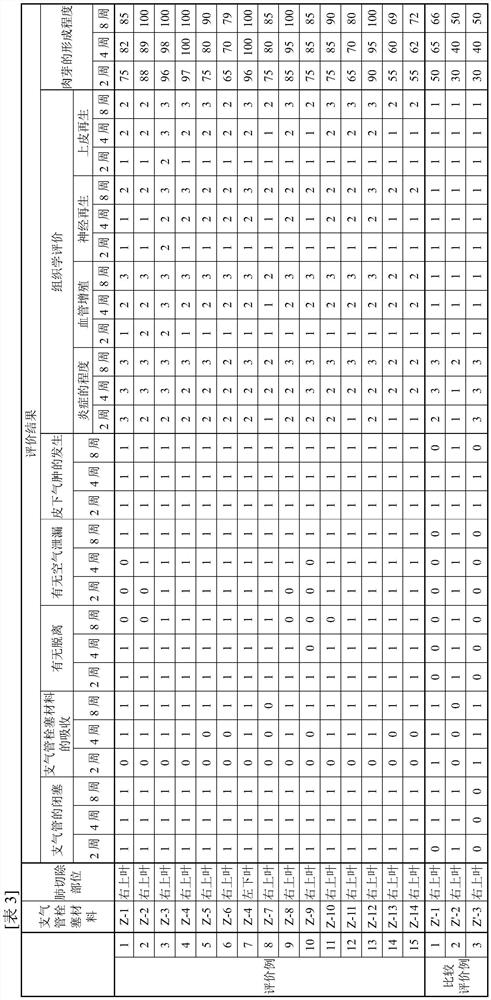Bronchial embolic material
A technology of bronchial embolization, applied in the field of bronchial embolization materials, which can solve problems such as removal, silicon residue, infection, etc., and achieve the effect of promoting repair and replacement
- Summary
- Abstract
- Description
- Claims
- Application Information
AI Technical Summary
Problems solved by technology
Method used
Image
Examples
Embodiment 1
[0190]
[0191] [Production of SELP8K]
[0192] ○Preparation of SELP8K strain
[0193] Plasmid pPTS0345 encoding SELP8K was prepared according to the method described in the Example of Japanese Patent No. 4088341 .
[0194] The prepared plasmid was transformed into Escherichia coli to obtain a SELP8K-producing strain. The following shows a method for producing SELP8K (polypeptide (A1)) as one of the polypeptides (A), which is a polypeptide of sequence (12) having a molecular weight of about 80 kDa, using the SELP8K-producing strain. With contains 12 (GAGAGS) 4 Sequence (6) and 13 (GVGVP) 4 GKGVP (GVGVP) 3 Sequence (7) and a structure in which these sequences are alternately chemically combined.
[0195] ○Cultivation of SELP8K-producing strains
[0196] An overnight culture of the SELP8K production strain grown at 30°C was used to inoculate 50 ml of LB medium in a 250 ml flask. To this LB medium, kanamycin was added to a final concentration of 50 µg / ml to prepare a cul...
Embodiment 2~6
[0227]
[0228] Example 1 was the same as Example 1, except that the concentration of protein (A-1) in the SELP8K solution in step 8 was changed from 12.5 g / L to 25, 40, 50, 100 or 150 g / L This was carried out to obtain bronchial embolization materials (Z-2) to (Z-6).
Embodiment 7~9
[0229]
[0230] In Example 4, except that the methanol used in Step 9 was changed to hexane, ethanol, or ethylene glycol, it was carried out in the same manner as in Example 4 to obtain bronchial embolic materials (Z-7) to (Z-9) .
PUM
| Property | Measurement | Unit |
|---|---|---|
| density | aaaaa | aaaaa |
| molecular weight | aaaaa | aaaaa |
| molecular weight | aaaaa | aaaaa |
Abstract
Description
Claims
Application Information
 Login to View More
Login to View More - R&D
- Intellectual Property
- Life Sciences
- Materials
- Tech Scout
- Unparalleled Data Quality
- Higher Quality Content
- 60% Fewer Hallucinations
Browse by: Latest US Patents, China's latest patents, Technical Efficacy Thesaurus, Application Domain, Technology Topic, Popular Technical Reports.
© 2025 PatSnap. All rights reserved.Legal|Privacy policy|Modern Slavery Act Transparency Statement|Sitemap|About US| Contact US: help@patsnap.com


